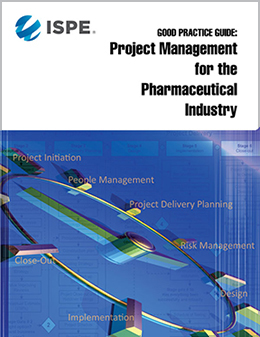Facility Project Management in the Regulated Pharmaceutical Industry (T26)
Overview
This training course aims to deliver more than the usual project basics and will develop the concept of the project lifecycle from initiation through to delivery of business benefits, providing tools to manage all project resources. It is specifically targeted to the needs of facility projects within the regulated pharmaceutical industry and demonstrates the value inherent in the use of “good practice” project management in the regulated pharmaceutical environment. This course is structured around a typical facility project lifecycle of Project Initiation, Delivery Planning, Design Planning and Delivery, Procurement, Construction, Commissioning and Qualification and Project Close-Out & Review and uses case study examples throughout to illustrate key points.
What You Will Learn
- Define a common language within the pharmaceutical Project Management community
- Define the relationship between project management and the technical aspects of delivering a project; validation, design, procurement, construction, commissioning and qualification
- Identify the key areas where compliance to cGMP can be positively impacted by the use of "good practice" project management and appropriately manage risk at all stages in the project lifecycle
- Articulate the key project management concepts, methodologies and tools applicable to each stage in the lifecycle of a typical pharmaceutical facility project
- Understand the role of risk management and how it should be integrated into each aspect of a project
- Effectively integrate "hard" project management skills such as cost, change and schedule controls; with “soft” project management skills such as project team building, management of sponsors and customers, etc, in order to ensure that project objectives are achieved and business benefits delivered
- Apply the principles of “good practice” project management within the regulated pharmaceutical environment appreciating the similarities and the differences between facility projects and other project types
- Understanding of the Project Management delivery system
Resources and Activities
- Pre-Course Work Materials
- Interactive Exercises
- Learning Assessments
- ISPE Good Practice Guide: Project Management for Pharmaceutical Industry
Course Modules
- Guide Introduction
- Human Resource Management
- Risk Management
- Project Initiation
- Project Delivery Planning
- Pharmaceutical Specific Design Planning and Delivery
- Implementation: Procurement
- Implementation: Construction
- Implementation: Testing and Commissioning
- Project Close-out
Who Should Attend
- Personnel entering facility project management coming from another discipline within the pharmaceutical industry
- Those with 2-3 years experience within a project role looking to improve their project delivery capability
- Engineers, project engineers, quality and IT professionals likely to support or deliver projects within their role
- Managers who are likely to sponsor projects.
Additional Course Details
Trends in regulatory compliance, environmental, health and safety legislation, project delivery methodologies, and product speed to market expectations all impact how pharmaceutical facility projects are managed. Each course module introduces key generic project management concepts and tools as well as methodologies that specifically support successful project delivery within the regulated pharmaceutical industry.
Attendees should have a basic sound understanding of GMP and the pharmaceutical industry as well as the basic concepts of project delivery i.e. cost, schedule, scope planning, and control.
This course includes content from A Guide to the Project Management Body of Knowledge (PMBOK Guide®), Sixth Edition. Copyright 2017 Project Management Institute (PMI®).
Communities of Practice
This training course is of particular interest to existing and future members of the ISPE Project Management Community of Practice (COP).
ISPE has been reviewed and approved as a provider of project management training by the Project Management Institute (PMI®)

